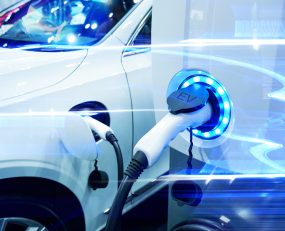
Two sets of European regulations are set to put zero emission truck (ZET) sales into overdrive in the coming years. European focused NGO Transport & Environment estimates that as many as 30% of new trucks on the road in 2030 will be zero tailpipe emission.
European Union General Approach to HDV emissions
Where the European Parliament needs to formally ratify the new regulations, the three main bodies – European Commission, European Council and European Parliament have in principle agreed a general approach on heavy duty vehicles’ (HDVs) emissions. When ratified, with some exemptions for military, agricultural and things like rubbish collection vehicles, newly registered HDVs on Europe’s road must:
Such demands from the European Union are going to push the logistics industry hard in the direction of acquiring ZETs as against internal combustion engine (ICE) vehicles. Freight manager at Transport & Environment, Fedor Unterlohner commented at the time, “European producers now have a clear trajectory to ramp up production of electric and hydrogen rigs and be ready for the challenge of Tesla and Chinese rivals.”
TCO at break even for BETs and diesel
As we have found in Transport Intelligence’s recent total cost of ownership (TCO) research, BETs are already at the crossover point where they are at a comparable cost to run as diesel vehicles. We estimate that BETs cost €1.14/km where ICE HDVs cost €1.18. As such, the time is right from an economic as well as regulatory point of view to consider large fleet purchases of BETs.
A number of major LSPs like DHL Supply Chain have already taken the leap, with the distribution arm of DHL Group committing to replacing 30% of its HDV fleet with ZETs in 17 countries by 2026. The new Euro 7 regulations that will apply to both newly registered EU and UK vehicles, will improve TCO even further.
Euro 7 – costs disproportionally hit ICE HDVs
The new Euro 7 regulations, on approval from the European Parliament probably later this year, will considerably add to the TCO of ICE trucks from around 2027. Euro 7 is less about greenhouse gases and more about the other noxious substances that affect public health and include:
Research commissioned by the European Automobile Manufacturers Association (ACEA) puts the TCO costs at a far higher level – perhaps as many as 10 times – as that suggested in the EC Impact Assessment.
One of the key issues, admitted by the EC, is that fuel economy will fall by 3.5% for ICE HDVs. Frontier Economics, which did the research, suggested that manufacturers will have to pay as much as €12,500 per HDV in production and this will be passed onto customers. It stated, “Take for example a long-haul truck with a mileage of around 1m km and a fuel consumption of 25l/100km. At a diesel price of €2/l, a 3.5% fuel increase would result in €17,500 in added fuel costs over the assumed mileage of the truck.”
With these two figures – €12,500 in added capital cost and €17,500 in fuel costs, the ICE vehicle will have an added €30,000 in TCO in a one million km lifetime. Ti estimates that an ICE HDV will cost close to €1.18/km already, so this added cost would be in the order of 2.5% for a million km.
The new Euro 7 regulations make demands on battery life that Frontier Economics estimate will add just €750 to a BET TCO in capital costs. Ti estimates that the TCO of a BET is €1.14/km before Euro 7, which over a million km would result in an added cost of 0.07%. As such, the ICE HDVs will be hit considerably harder than BETs. We have not forecast the TCO of BETs for 2027, but BETs will be cheaper then than now by a margin even without Euro 7 factored in.
Other European regulations improving TCO
Worthy of note, the 2.5% uplift in ICE HDV TCO is going to hit at a similar time to preferential ZET tolling on the main roads of the bloc. With new ZET preferential tolling, we estimate that BETs will get a 12.5% reduction in TCO over that of ICE HDVs over 600,000km. This preferential treatment will further improve the economic incentive of going electric. With the cost of fuelling factored in, hurdle by hurdle, the excuses to not choose a BET over an ICE vehicle are falling.
No firm dates…
Unlike the UK where Parliament’s agenda changes with the makeup of MPs, the European Parliament will certainly consider the new emissions regulations regardless of the European elections. Two questions remain – when will these regulations pass into law, and will MEPs have the appetite to support them in their current form? Where the Greens and Social Democrat blocs of MEPs are in full support, given the wave of protest against certain climate change related reforms in recent months, will they have sufficient numbers to drive such regulation forward?
One thing is certain – while the text might differ in some form from its current state, such regulation will pass through, and probably in 2024. Once again, even with uncertainties we raise here, they cannot be ignored.
Fleet managers need to look into BETs now
With a typical new HDV ownership span of an HDV in the order of 5-7 years, these new regulations put ZET acquisition squarely on the desk of fleet managers even now. A sizeable proportion of regional use BET HDVs will make up fleets from just 3-4 years from now, and as such the time to consider the fleet makeup and infrastructure for future ZETs has come.
Author: Richard Shrubb
Source: Ti Insights
Supply chain strategists can use GSCi – Ti’s online data platform – to identify opportunities for growth, support strategic decisions, help them stay abreast of industry trends and development, as well as understand future impacts on the industry.
Visit GSCI subscription to sign up today or contact Michael Clover for a free demonstration: [email protected] | +44 (0) 1666 519907